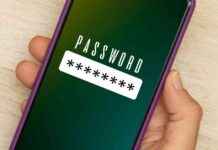In a recent podcast interview with Cyber Expert Scott Schober, important lessons were learned from the HealthEquity data breach. During the interview, Schober discussed the potential repercussions of the breach and shared insights on cybersecurity. The breach serves as a reminder of the importance of implementing robust security measures to protect sensitive data.
HealthEquity, a health savings account provider, experienced a data breach that exposed the personal information of thousands of customers. The breach highlights the vulnerability of personal data in today’s digital age and underscores the need for organizations to prioritize cybersecurity.
Schober emphasized the importance of proactive cybersecurity measures, such as regular security audits and employee training. He also stressed the need for organizations to stay updated on the latest security threats and trends in order to effectively protect their data.
One key takeaway from the HealthEquity data breach is the importance of encryption. Encrypting sensitive data can help prevent unauthorized access and safeguard information from cyber attacks. Organizations should implement encryption protocols to protect their data and ensure the privacy of their customers.
Another important lesson learned from the breach is the need for strong password policies. Weak passwords are a common vulnerability that cybercriminals exploit to gain access to sensitive information. Organizations should enforce password complexity requirements and encourage employees to use unique passwords for each account.
Additionally, the HealthEquity data breach highlights the importance of incident response planning. In the event of a data breach, organizations need to have a well-defined response plan in place to mitigate the damage and prevent further compromises. A proactive incident response strategy can help minimize the impact of a breach and protect the organization’s reputation.
Overall, the HealthEquity data breach serves as a wake-up call for organizations to prioritize cybersecurity and take proactive measures to protect their data. By learning from this incident and implementing robust security measures, organizations can strengthen their defenses against cyber threats and safeguard sensitive information from potential breaches.










